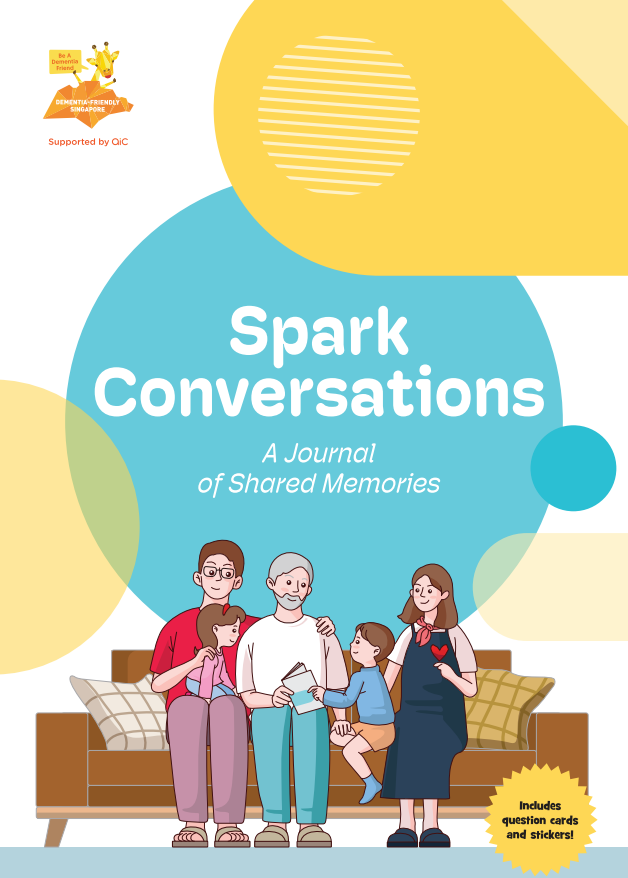
This journal encourages a deeper understanding between youths and seniors by engaging in meaningful conversations and journalling them down.
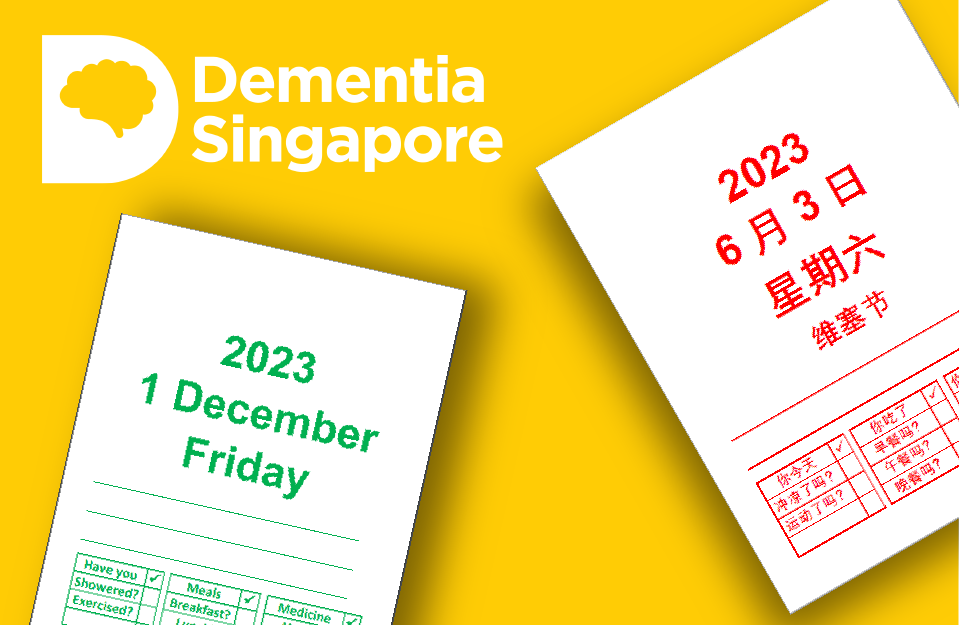
This calendar was created as a tool to help persons living with dementia keep track of important tasks including activities of daily living, taking medication and appointments, thereby empowering them to orientate themselves to the date/day of the week and other special occasions, maintain independence in self-care roles. This calendar is meant to be printed in colour so it has a familiar look similar to traditional tear-away calendars. It is relatively simple to assemble at home. Watch the video for a step-by-step guide on how to assemble the calendar.
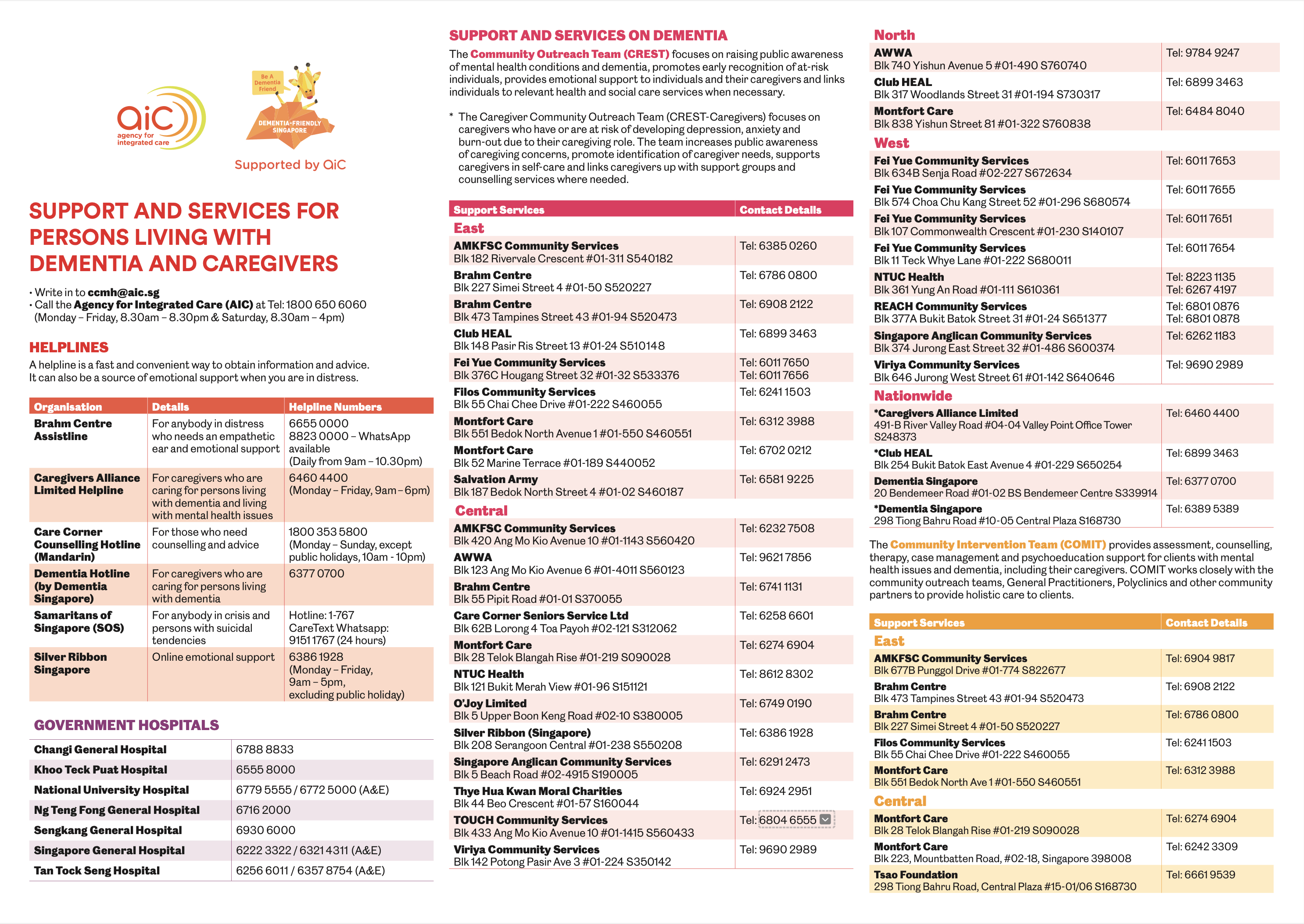 More from this series
More from this series
Download the listing for helplines and support and services such as Community Outreach Teams, Community Intervention Teams, respite care services and caregiver support groups.
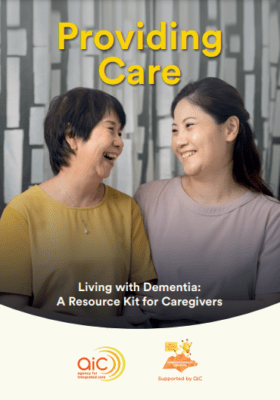 More from this series
More from this series
Provides tips on how to effectively communicate with a loved one and how to design a daily routine with engaging activities.
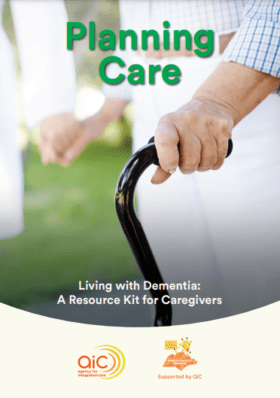 More from this series
More from this series
Provides information on financial and legal planning, and useful tips on how to make a home more dementia-friendly.
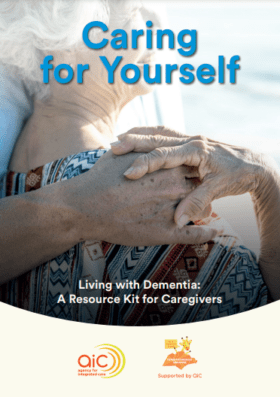 More from this series
More from this series
Provides caregivers with useful self-care tips, and know where and how to seek help within the community.
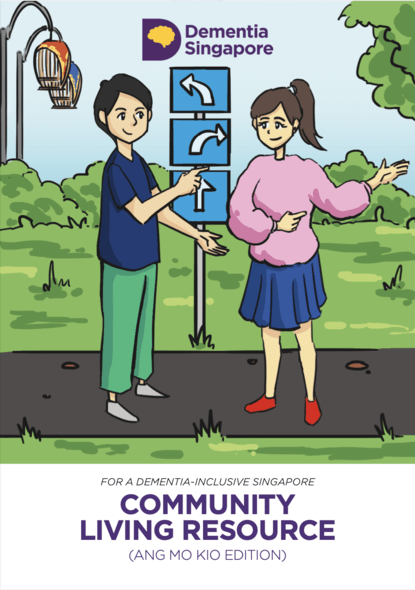
Compiled by the Ang Mo Kio Partners Network, this is a dementia resource of local amenities and services for residents to live well in the community.
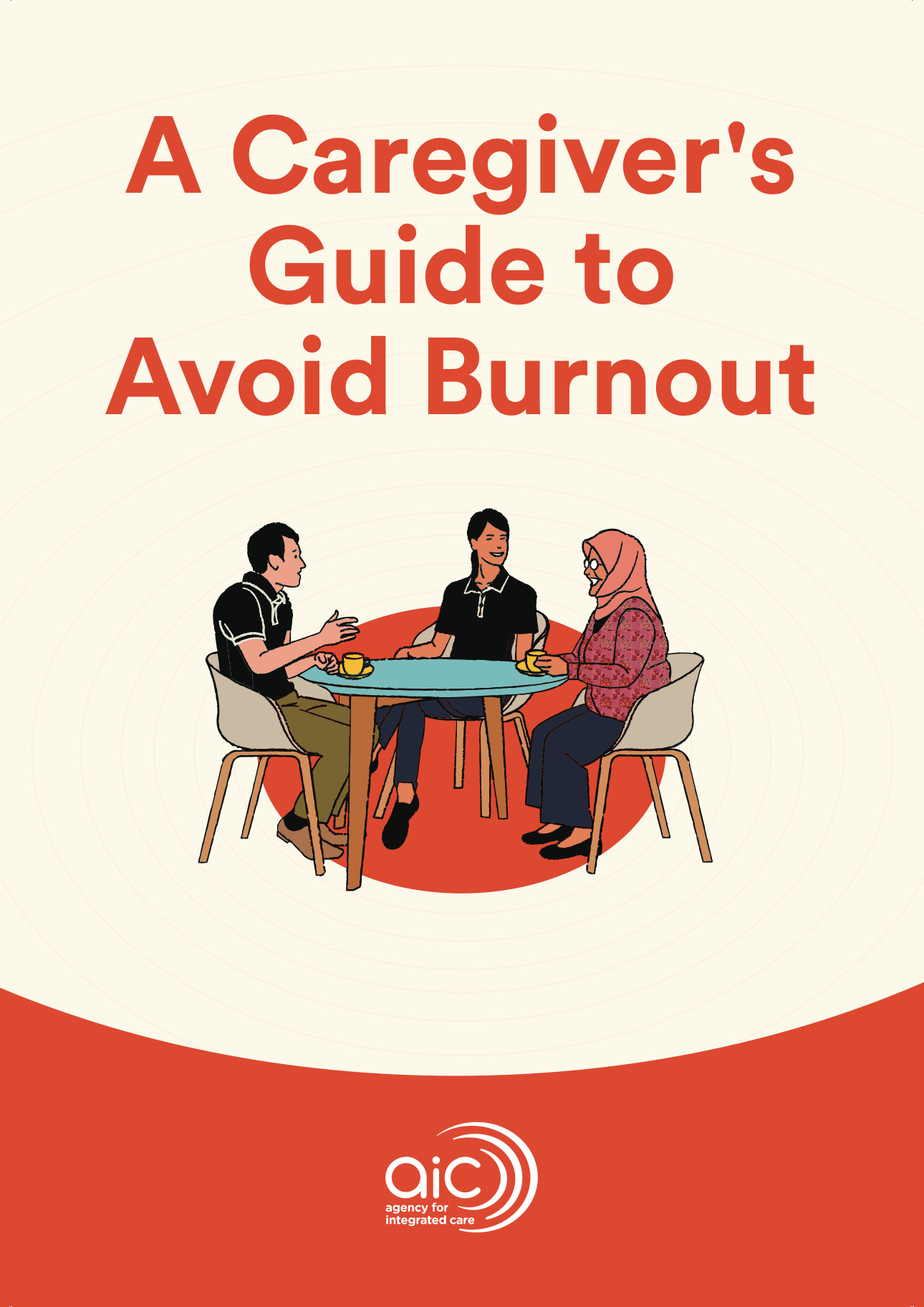
This resource features tips for managing negative emotions, coping with emotional burdens, self-care & respite time
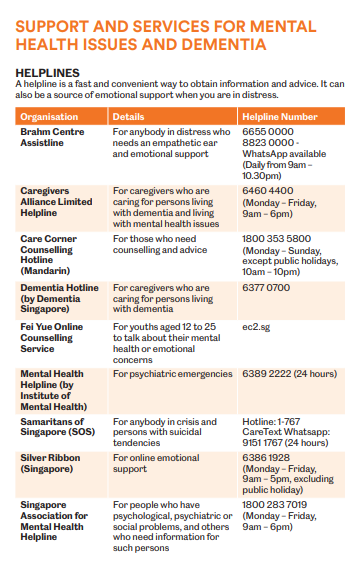
This resource provides a comprehensive list of support & services for dementia & mental health issues in Singapore
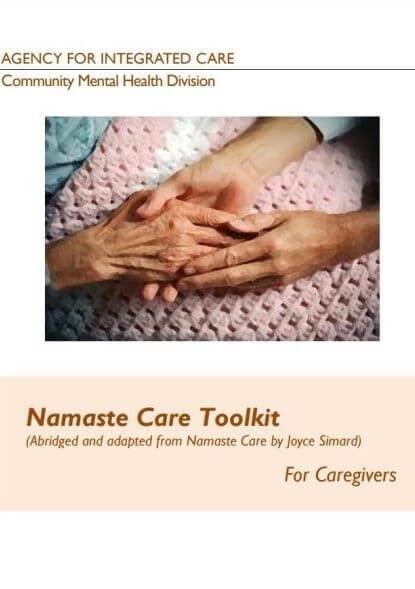 More from this series
More from this series
This toolkit offers practical tips for communicating with your loved one & creating a conducive space for activities
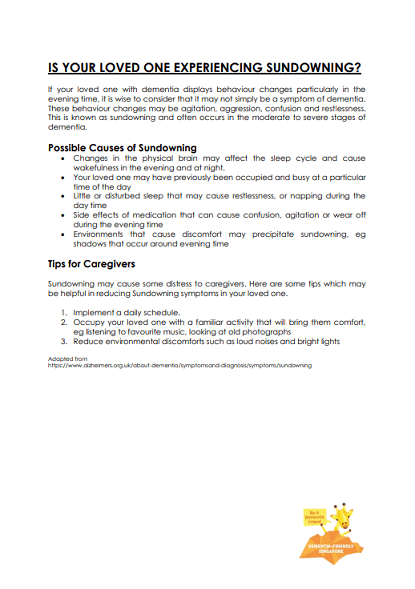
This resource features information on the possible causes of sundowning & tips for caregivers to cope with it
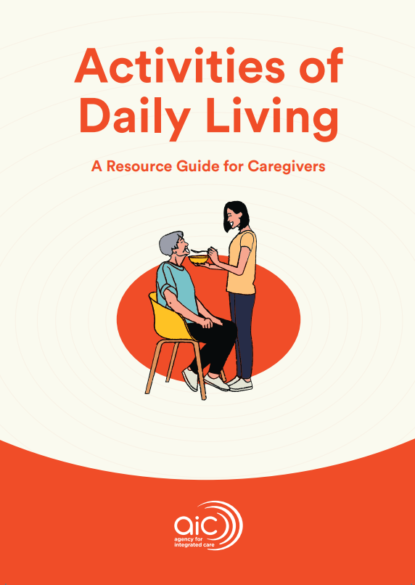
This handbook offers caregivers a step-by-step guide on how to support their loved one with activities of daily living
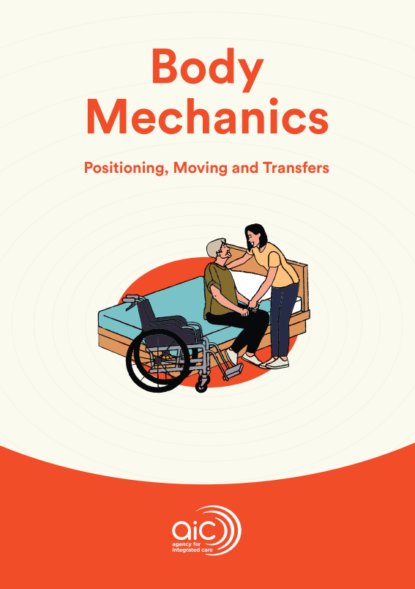
This guidebook offers safety tips for caregivers who need to physically move their loved one from one place to another
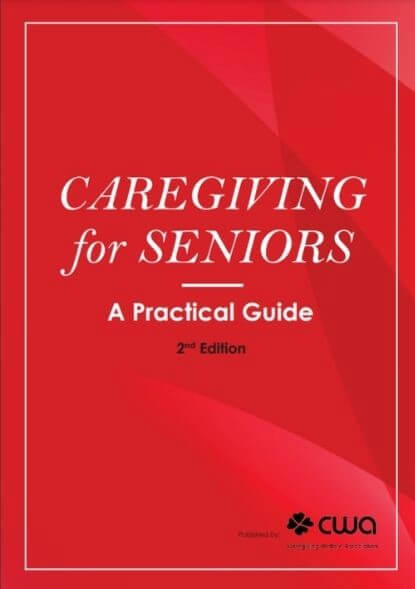
This handbook contains practical information & tips that caregivers can use to cope with the challenges they may face
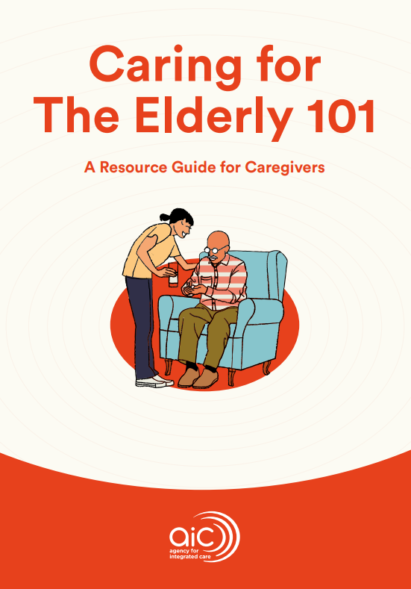
This resource provides information on financial and legal matters, training, home modifications & self-care tips
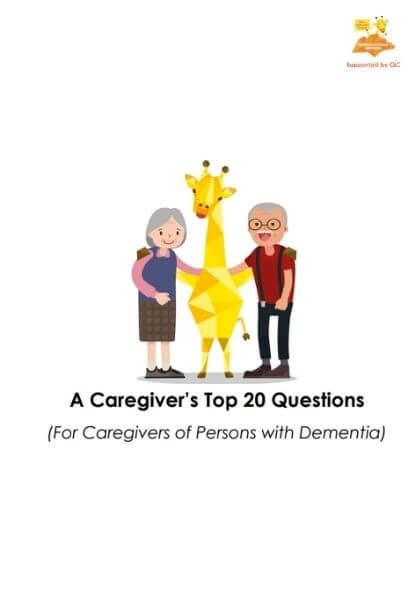
This document provides answers to frequently asked pre- & post-diagnosis-related questions from caregivers
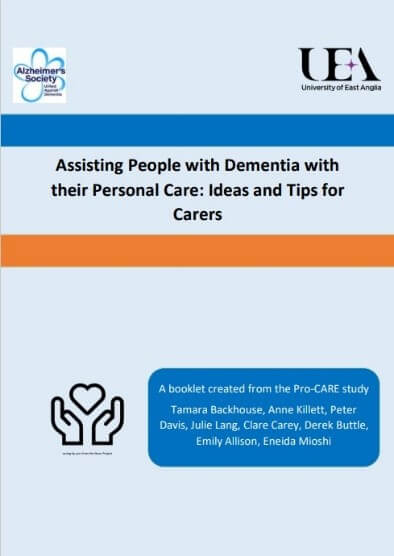
This booklet features practical tips for caregivers and care professionals of persons with moderate-to-advanced dementia
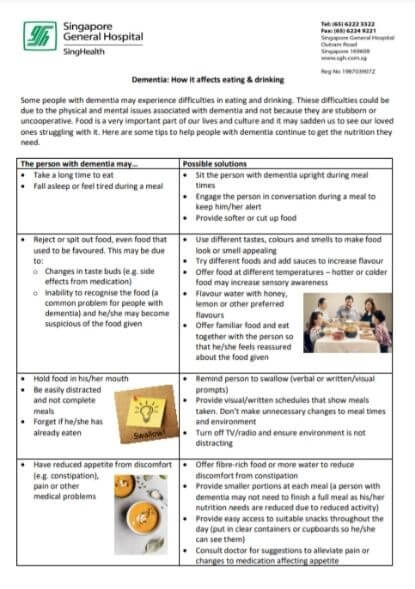
This summary from Singapore General Hospital offers tips to ensure that people with dementia get the nutrition they need
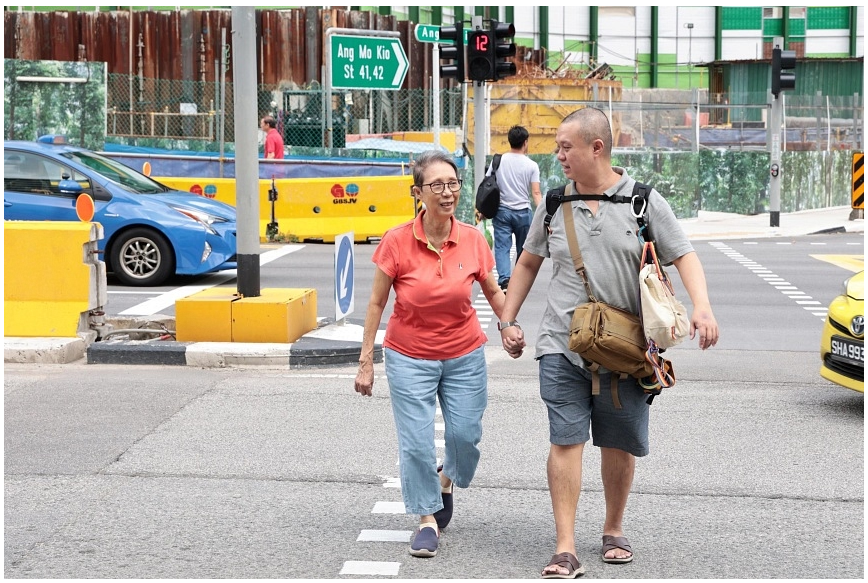
When his mother developed Alzheimer’s disease, Glenn Poh took it upon himself to look after her. He pens a message about navigating the twists and turns of caring for her.
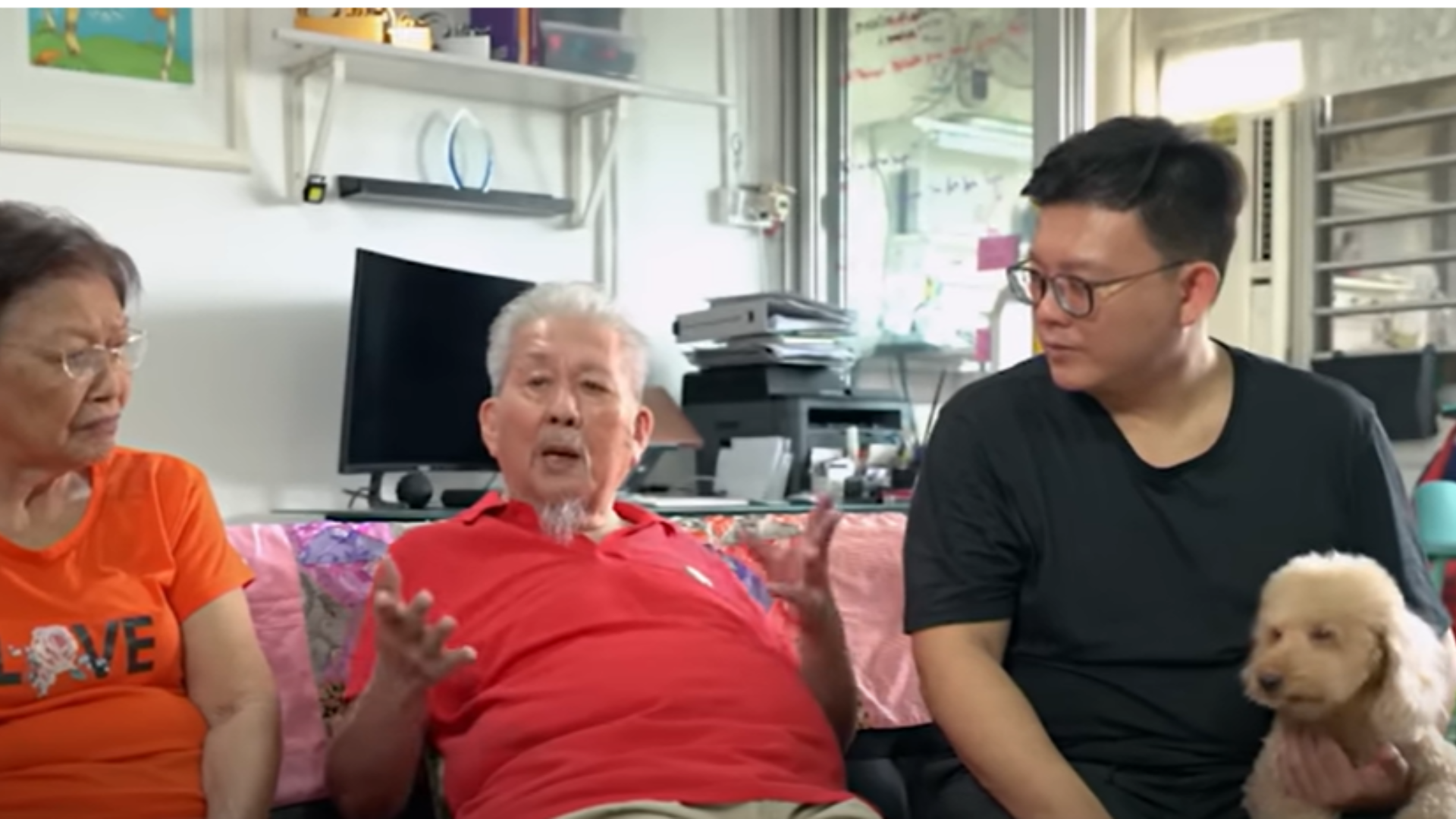
Daniel, at age 29, became a caregiver to his dad who was diagnosed with Alzheimer’s disease, and to his mum who had breast cancer.
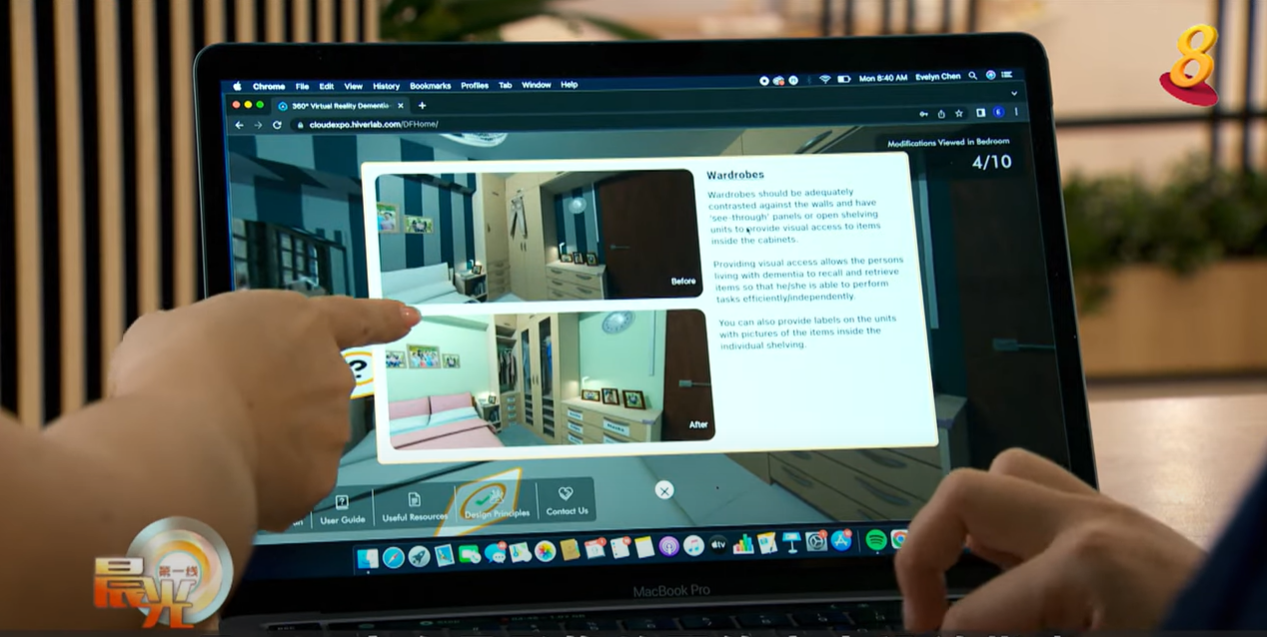
There is an increase in the number of caregivers who modify their homes just to help their loved ones living with dementia to get on with their daily activities.
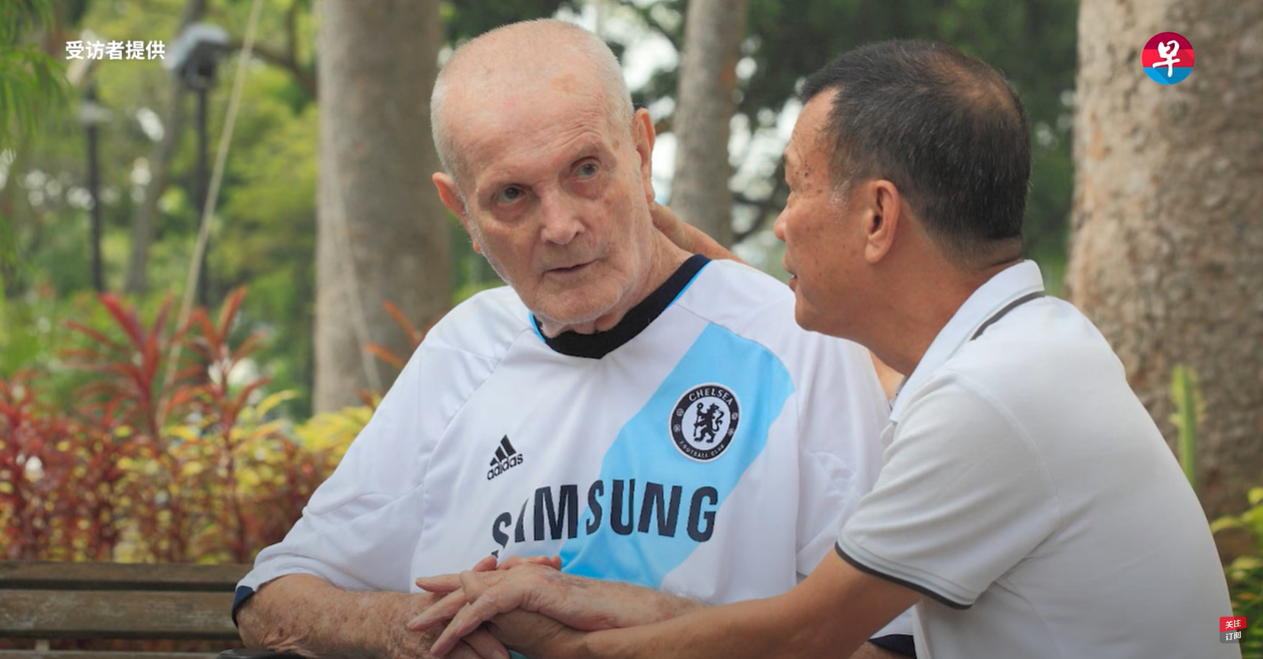
Known to him as Uncle John, Richard Ashworth was fostered 46 years ago. Richard has been taking care of Uncle John who was diagnosed with colorectal cancer 22 years ago, and was diagnosed with dementia 10 years later.
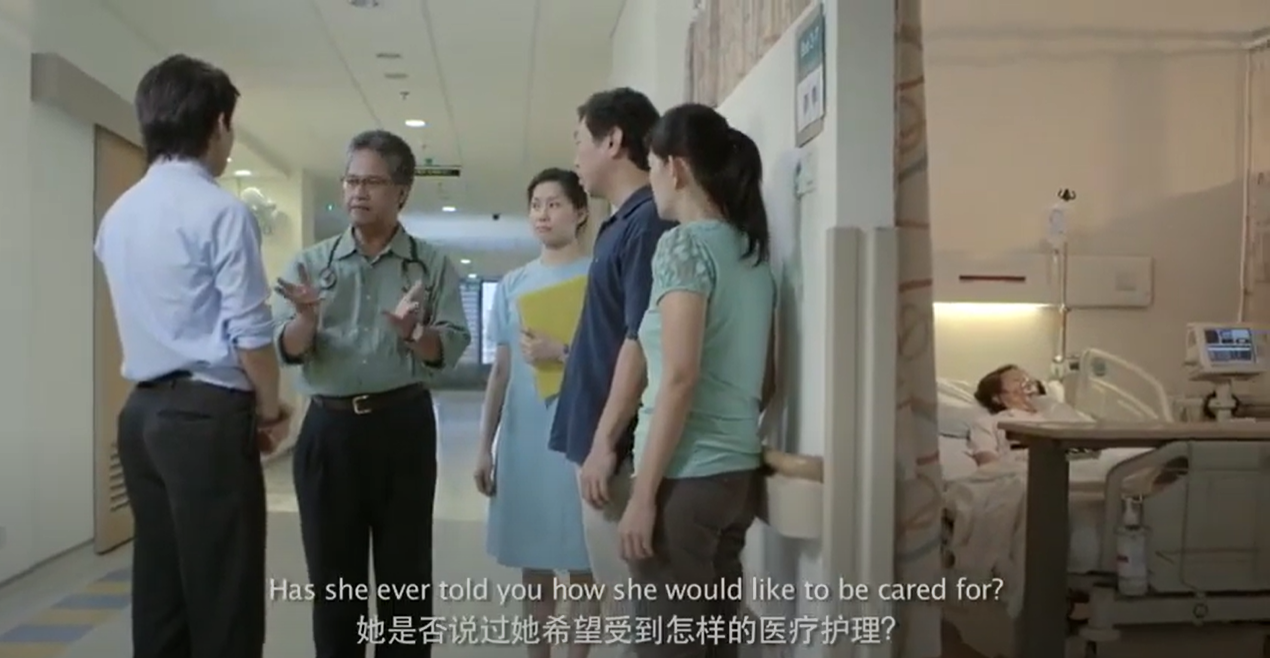
Advance Care Planning (ACP) is a national programme that aims to empower Singaporeans to choose how they would like to be cared for. Find out more about ACP in this video.
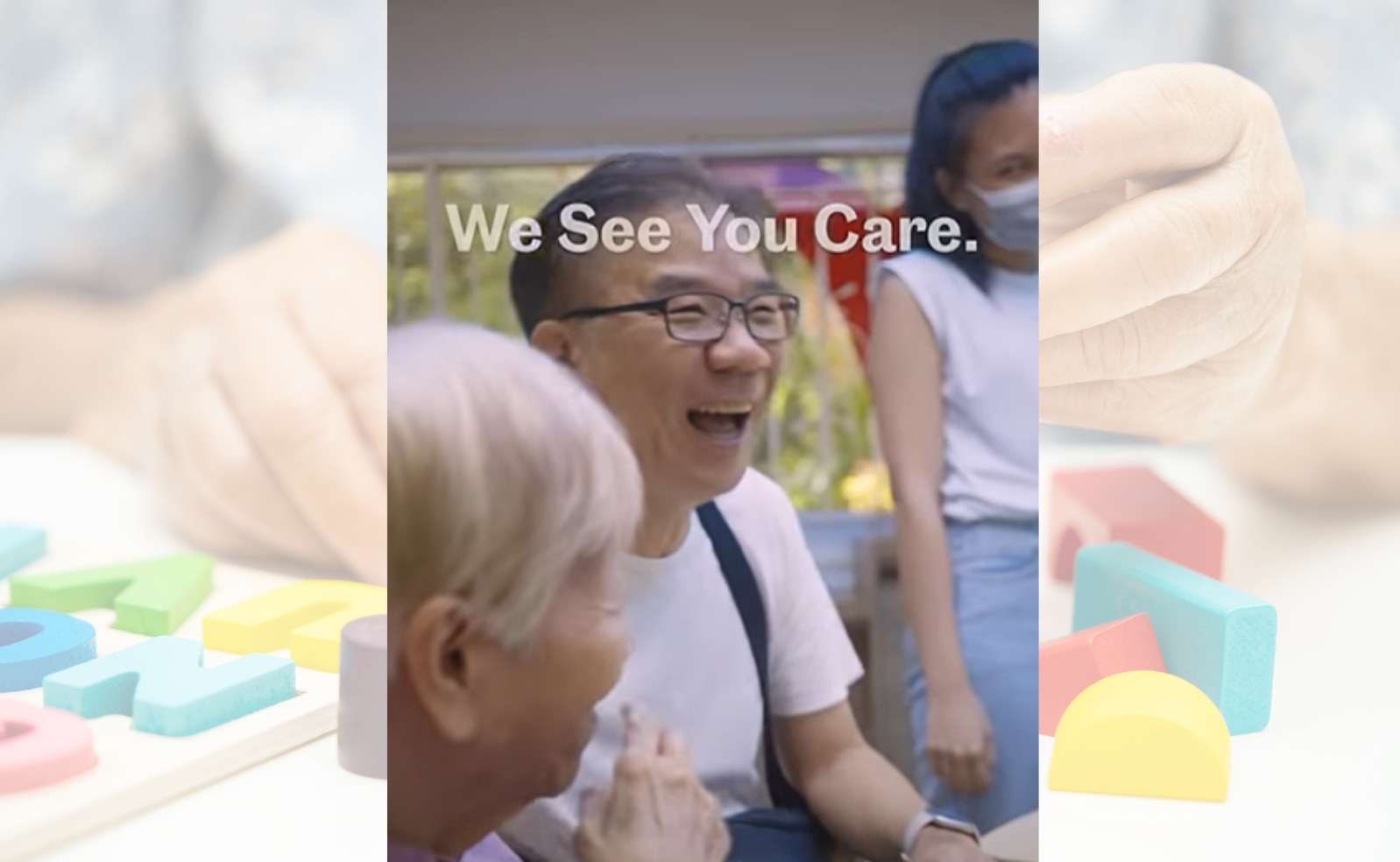
Hear from Alan as he shares how he sought help from a day care centre to care for his 84 year-old mother who is living with dementia.
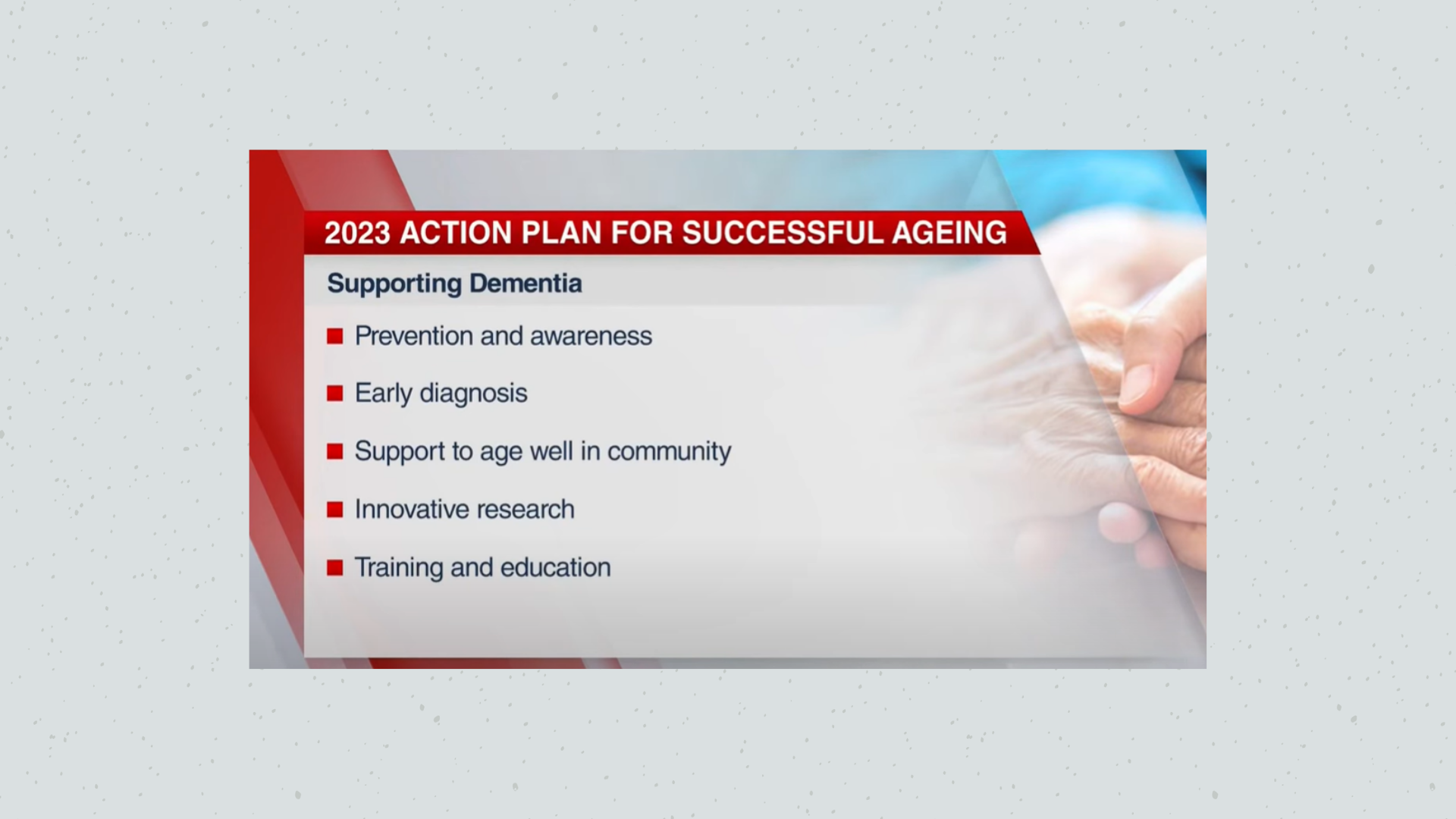
The ministry of health seeks to improve dementia care by increasing prevention and awareness, as well as early diagnosis. CNA reports.
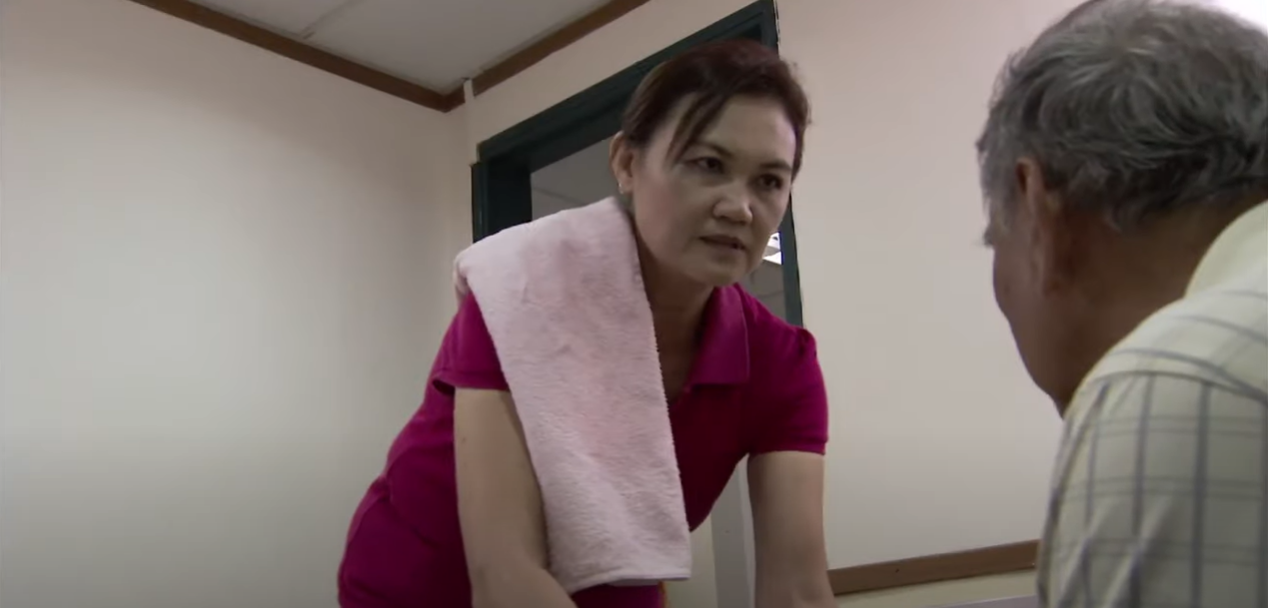
What are the do’s and don’t’s of caring for someone living with dementia? Here are some practical and useful pointers.
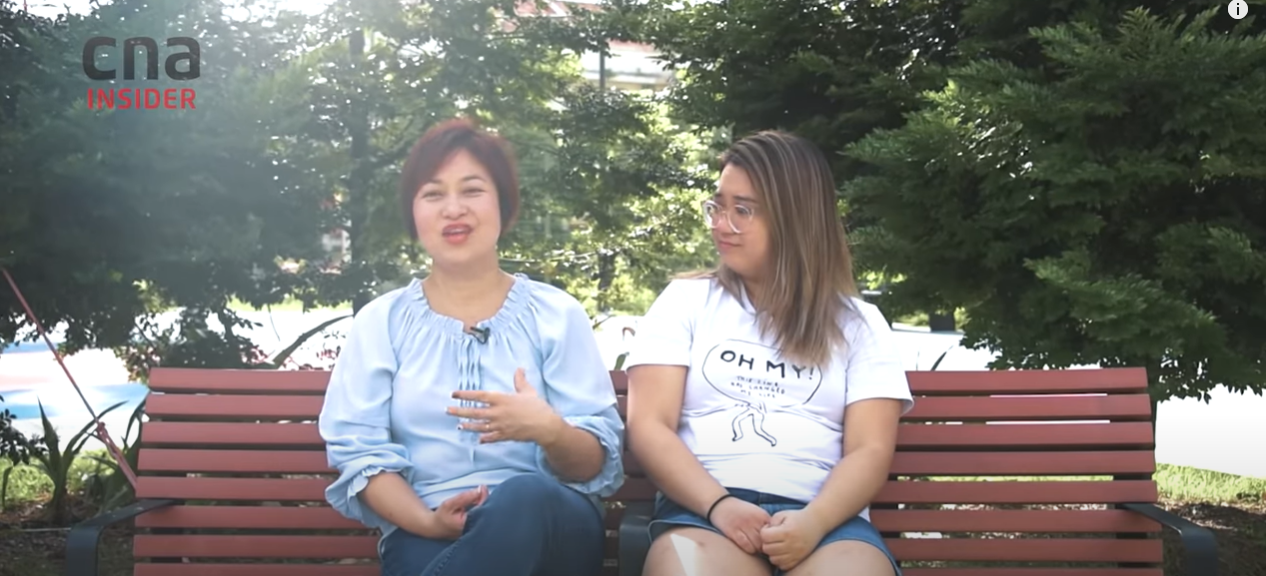
At first, Bethany’s grandpa dementia symptoms included forgetfulness and confusion. But when wandering and getting lost began, fear set in.
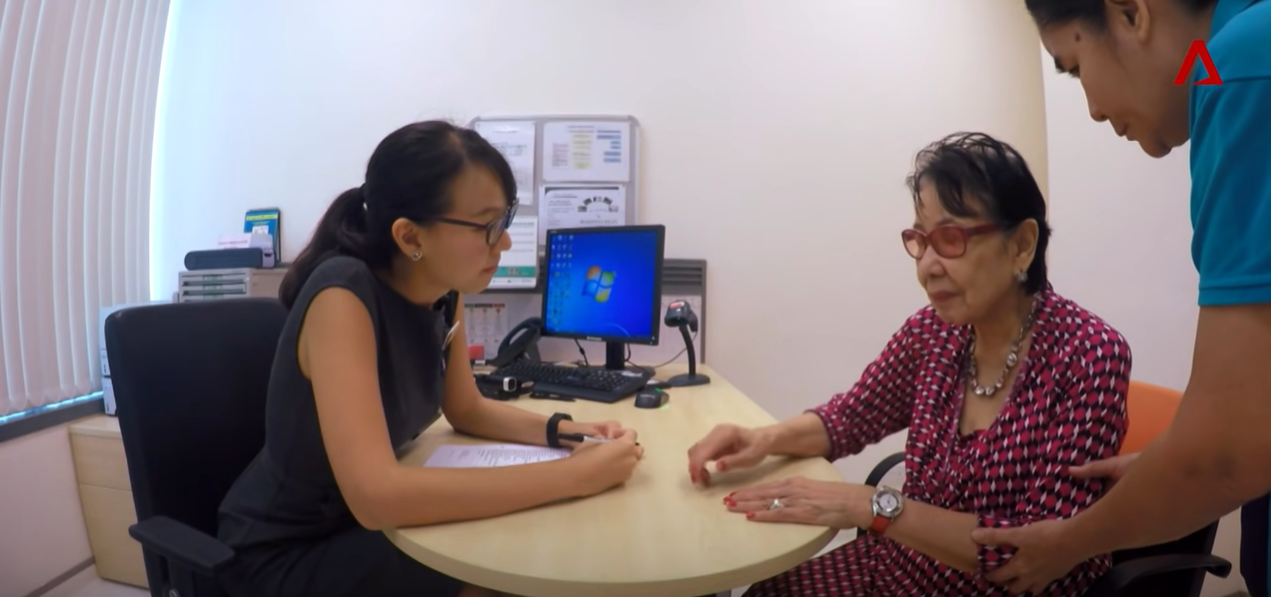
What happens when a parent gets dementia? Galen Yeo documents the drastic changes in his mother over the years.
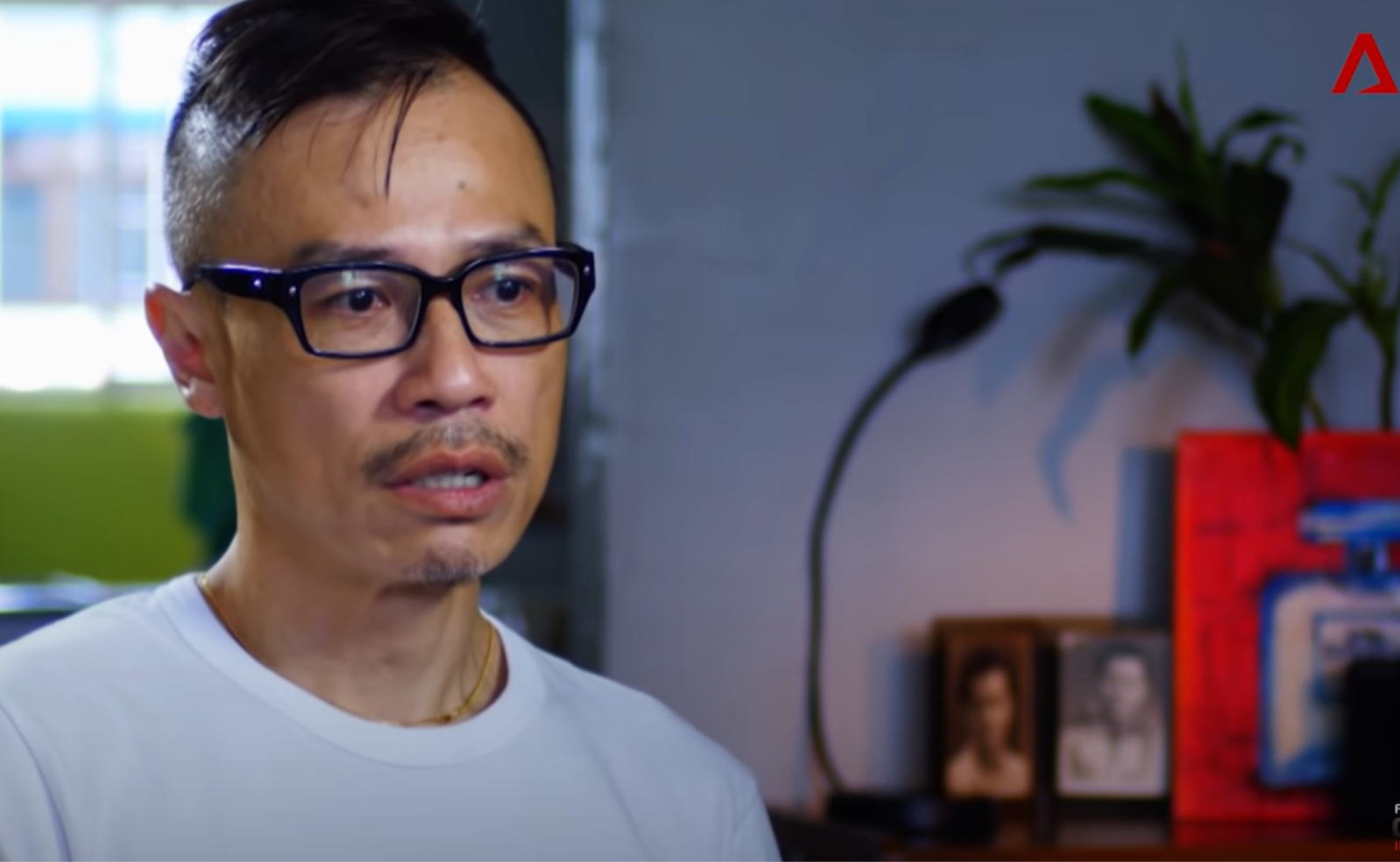
Artist Danny Raven Tan talks about the emotional and psychological challenges of caring for someone with dementia.
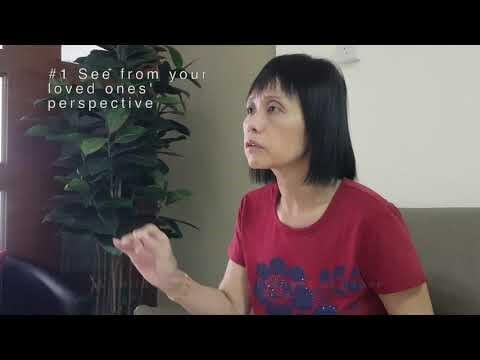 More from this series
More from this series
This video features Janet Koh, who shares useful tips for caregivers to better care for their loved ones & themselves
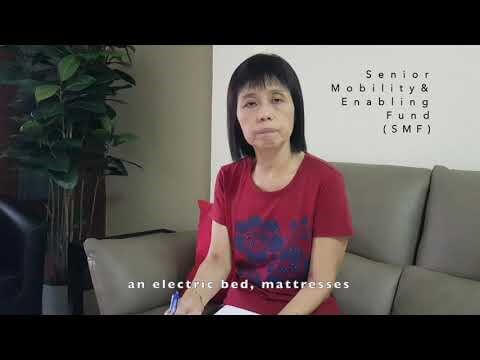 More from this series
More from this series
This video features Janet Koh, who shares useful resources such as financial grants to help caregivers in their journey
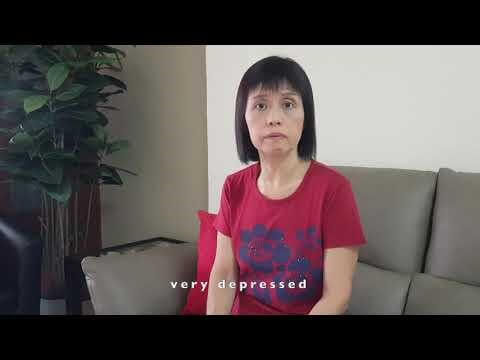 More from this series
More from this series
This video features Janet Koh, who shares her experience caring for her mother who lives with dementia
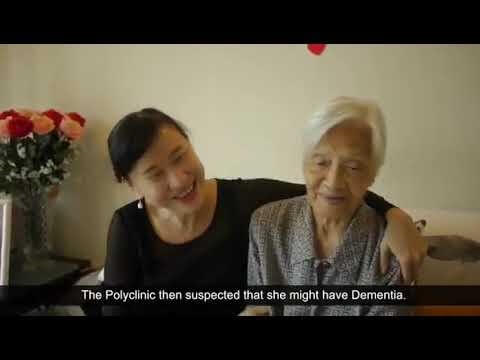
This video provides an insight into the caregiving journey of a caregiver, Stella, & the positive effects of counselling
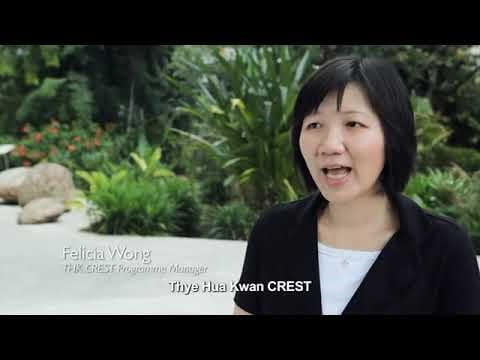
This video features the support & services from Temasek Cares-iCommunity@North available for those impacted by dementia
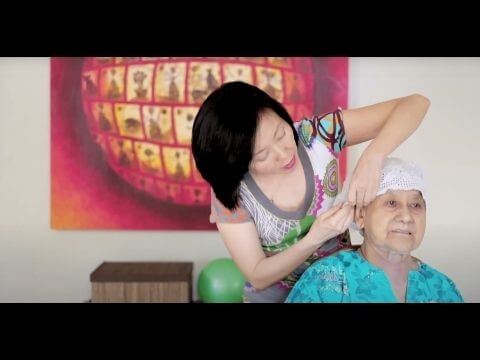
Discover strategies and techniques offered by caregivers on how to deal with concerns such as confusion & restlessness
 More from this series
More from this series
Ms Sharon Gan, a senior counsellor, & Mr Richard Ashworth, a caregiver, answer questions about self-care for caregivers
 More from this series
More from this series
Dr Ng Wai Chong answer questions related to managing the behaviour changes of person living with dementia
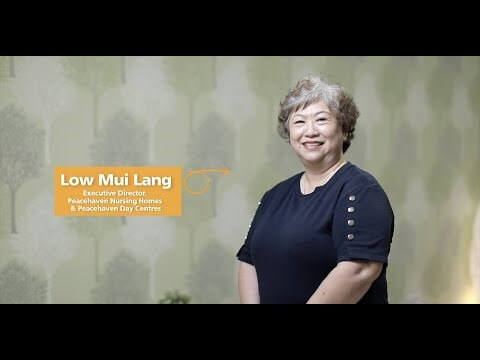 More from this series
More from this series
Ms Low Mui Lang answer questions about managing the daily activities for persons with dementia
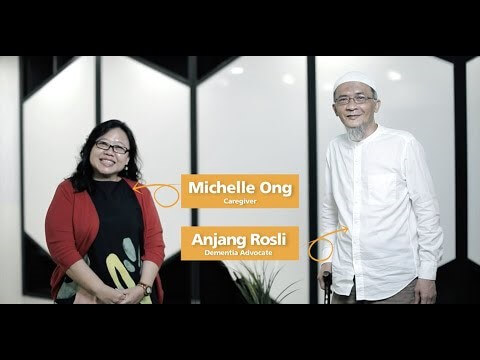 More from this series
More from this series
Michelle,a caregiver, & Anjang,who lives with dementia, answer questions about communicating with persons with dementia
 More from this series
More from this series
Mr Yue-En Chong, from the Law Society of Singapore, answers questions related to finances & legal planning
 More from this series
More from this series
Dr Chen Shiling, a physician, & Ms Emily Ong, a dementia advocate, answer questions about dementia diagnosis & treatment
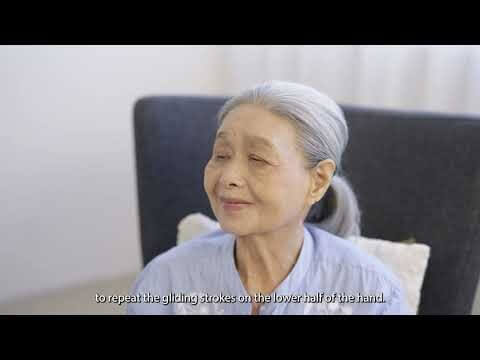
This video shows caregivers how to practise Namaste Care, especially for loved ones with moderate to advanced dementia
 More from this series
More from this series
This video documents the Namaste Care focus group discussion in Singapore
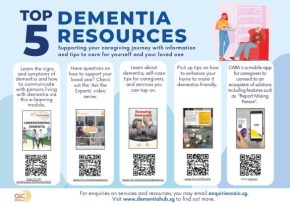
5 top-ranked tips and guides that help support your caregiving journey with useful information to care for yourself and your loved one.
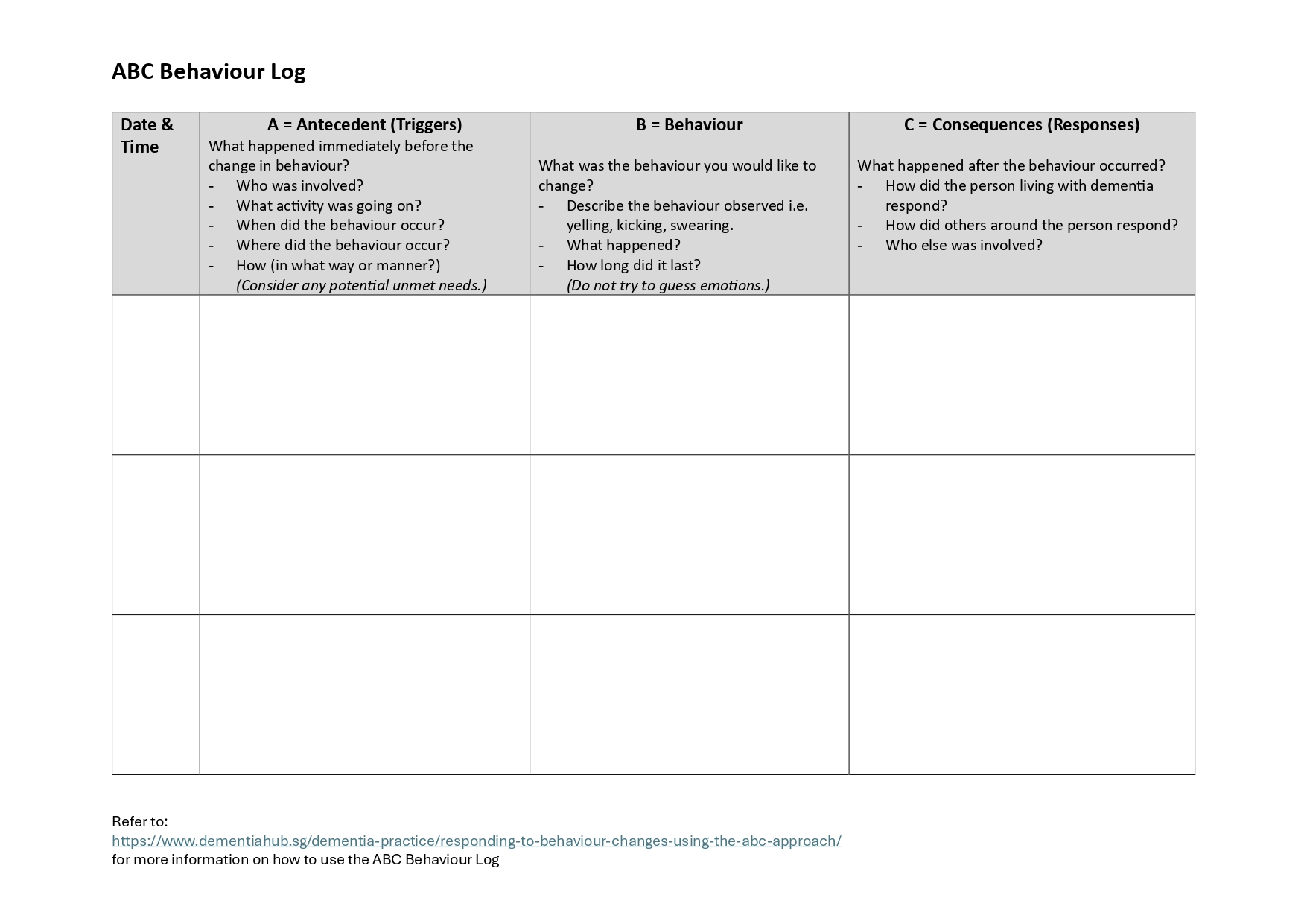
The ABC Behaviour Log helps care professionals record triggers of behaviour changes (Antecedents), describe the behaviour (Behaviour), and identify subsequent outcomes (Consequences). This methodical approach is invaluable for developing personalised strategies to effectively prevent or manage these behaviour changes.
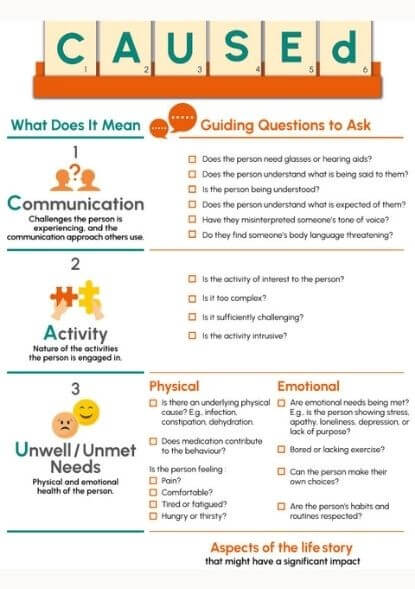
This tool is aimed at helping caregivers understand the behavioural changes of persons with dementia